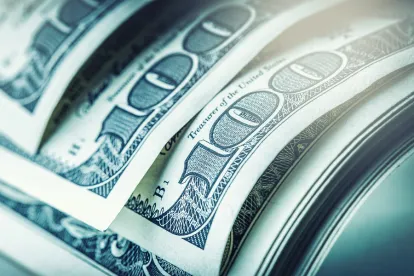A bill to ban restaurant and retail establishments in New York City from going cashless has been introduced in the New York City Council.
The bill’s sponsor, Council Member Ritchie Torres, introduced the measure amid a growing number of retail establishments adopting credit or debit card-only business models. He asserts that the practice of not accepting cash is racially exclusionary.
Fine for Refusing to Accept Cash
Intro. 1281 would prohibit a “food-service establishment or a retail establishment, as policy, to refuse to accept payment in cash from consumers.”
Violating the prohibition would result in a fine of not more than $250 for a first violation, and not more than $500 for each succeeding violation. The New York City Department of Consumer Affairs would be responsible for enforcement and the fines would take effect 120 days after Intro. 1281 becomes law.
Issues with Cash, Issues with Credit
The number of cashless operations in New York City is growing. Merchants say their key reasons for going cashless are increased efficiency and fewer health risks. Paper currency and coins necessitate cash registers, safes, sorting, counting, security, and frequent trips to the bank. Advocates for cashless operations also assert that paper bills carry pathogens that cause ailments, including acne and salmonella poisoning. Going cashless has become part of restaurants’ and retailers’ business models. Transportation providers also have adopted the policy. For example, the state of New York does not accept cash at many of its bridges, tunnels, and toll roads. If Intro. 1281 passes, it could change the way many businesses operate in New York City.
Torres asserts that the ban is necessary to stop the exclusion of lower-income communities of color from what should be an open and free market. Black and Hispanic households are more likely than white households to be “unbanked,” meaning no one in those households possesses a checking or savings account, according to data from the FDIC. “The cashless marketplace sends an exclusionary message — that the impoverished, the homeless, the underbanked, the undocumented need not apply,” Torres said in an interview about the bill. He also said, “I think we need to ask ourselves as a city, is that the kind of de facto discrimination we’re okay with sanctioning in the marketplace?”
Next Steps
The Council’s Committee on Consumer Affairs and Business Licensing will need to hold a public hearing on the bill before it goes to the City Council for a vote. The bill is expected to face opposition from the food service industry, which continues to see rising costs for doing business in New York City, as well as in the state. If the bill passes in the City Council, it likely will become law. Mayor Bill de Blasio said in December that, although he had not yet read the legislation, it “has merit.”




 />i
/>i
